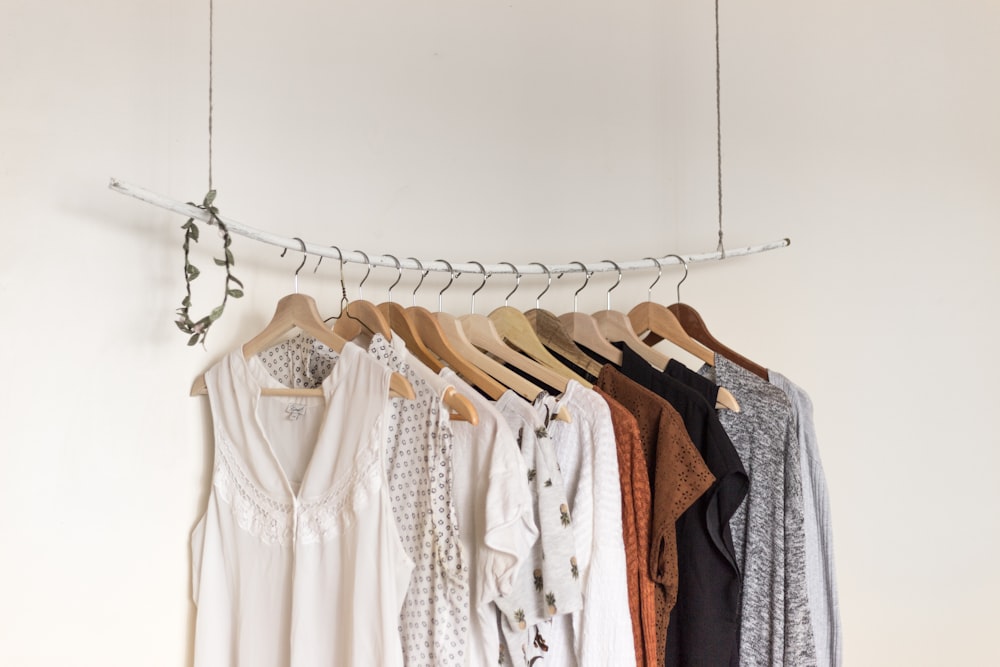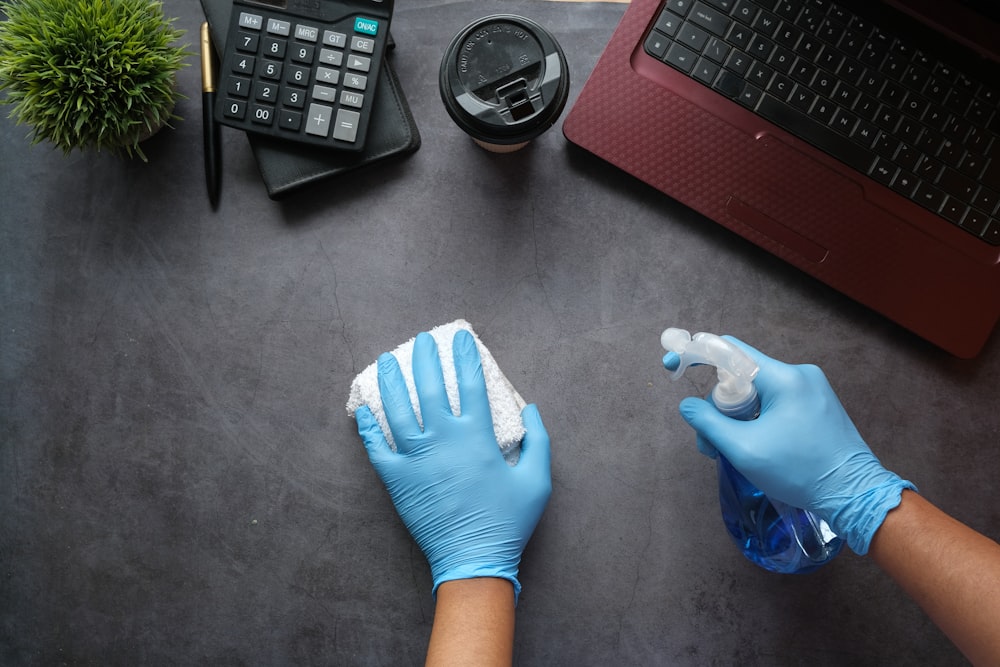
Many people who are naturally messy, untidy or disorganized are aware of how much better their quality of life would be if they could stop being messy.
Drawers that can no longer be closed as wrinkled and unfolded clothes tower over the holding capacity, a chair that can no longer be sat on and has become somewhat of a shelving extension, or floors that you have to tip-toe your way through like a kid in a maze because of the amount of stuff scattered everywhere —this is not an uncommon scene for many individuals who live on their own. Messiness is a bug that affects most of us once in a while. And the temptation to be lazy and just let things slide increases when you’re alone because you have no one to share the space with. Hence, you don’t feel embarrassed to let your hair down and act like a slob because no one else will be inconvenienced.
If you suffer from anxiety or depression, you might find that living in a tidy living space makes you feel better. It may be tough to find the motivation to clean, but it’s very likely you’ll feel significantly better once you do.
Does Messiness Run in Your Family?
Notably, some people do have natural inclinations toward being untidy and disorganized. Dr Brendan Zietsch, who studies genetic traits of humans in the University of Queensland says that a tendency for messiness can be inherited from either one or both parents. However, the environment one grows up in and is accustomed to also plays a significant role in determining our organizational skills. Unfortunately, individuals who have grown up in messy homes are more likely to carry over untidy habits into adulthood. Now, messy is not necessarily gross. Messiness is seen when you leave things in their improper places, have your books stacked in a pile with the corners not matching up, or have clothes out on the bed, etc.
While you may not think you are directly affected by your messy habits, science has shown that a messy environment has deep and lasting impacts on our mental health and psyche, even if we are not aware of it. Have you ever walked into a messy closet or sat at an extremely disorganized desk, and then you feel a squeeze in your chest and your breaths suddenly become shallow? You are not alone.

Being Messy Can Cause A Lot Of Anxiety
Research confirms that a messy environment can heighten one’s feelings of anxiety. As the queen of cleanliness and tidiness, Marie Kondo, puts it, “a messy room equals a messy mind.”
With all the things going on in your environment and the different kick knacks scattered around, a messy milieu can cause you sensory overload and overwhelm your brain. This chaotic frame of mind can eventually force you to become distracted, lose focus, make you feel lost, adversely impact sleep, and negatively influence your mental health.
While it is easy to feel stuck in old habits, messiness can be cured! All it takes is some effort and a commitment to a change of mindset, as Marie Kondo also says,” people cannot change their habits without changing their mindset.” Below are some ways that you can combat messiness, get around to tidying up a messy home as a person living solo, and stop being messy:
1. Set Realistic Goals to Help You Stop Being Messy
The first and most important thing to do is set realistic goals that you can actually accomplish. Too far-fetched and ambitious goals will just make you feel frustrated. It is vital that you separate these goals into long-term and short-term ones. For long-term goals, these are the big goals that will take you a while to achieve. It can be something like emptying 70% of your closet, taking out 60% of your pantry, and discarding ALL of that junk in your basement that no longer “spark joy”, as Mari Kondo puts it.
Decide that by next week, you’ll have filled a garbage bag with donation items. Fill it with clothes that no longer spark joy.
Then, set the short-term goals. These are the things you wish to achieve daily, weekly, or monthly, that will lead up to achieving your long-term goals. It can be something like discarding or donating one article of clothing a day, removing one thing from the basement each month, and throwing out one unused pantry item each week. You can also set up cleaning regimens like wiping surfaces daily at the end of the day to prevent dust from accumulating. Then you can set up weekly chores like deep cleaning the bathroom or steam vacuuming.
2. Vow Not to Let Things Pile Up
When you’re not a big fan of cleaning and chores, things can pile up and escalate rapidly. Whether it’s the dishes or washing the laundry, do not procrastinate. Otherwise, a small task turns into a herculean mountain that takes longer and needs more effort to do. Clearly, it is a lot harder to harness the motivation and the time to clean a dirty dish pile or wash a month’s worth of dirty laundry.
Doing a little every day is better than letting things pile up because the latter results in undue pressure. After all, you’re alone and no one can help you with the accumulated clutter but yourself. Instead, tackle something while it’s still a decent, manageable size. Waiting for escalation will be overwhelming and make you feel tired before you even start.
You can start with micro habits like washing the dishes as soon as they hit the sink, or by scheduling your laundry every other day or twice a week. Dividing these responsibilities into smaller and more manageable tasks will motivate you to get moving and cleaning. And doing these daily won’t seem like a chore because you can finish them faster. Use a calendar or create a to-do list to keep you onboard the neatness track.

3. Give Everything a Proper Space
One of the best ways to keep organized is to create a designated space for everything. For example, clothes go in the closet, work items go on the desk, and books go on the bookshelves. You have to leave clothes, work items, books, and other things scattered all over. When you know the exact place where a specific item is stored, you will become more inclined to put it away.
As a result, your home will look cleaner, and you will also feel more at ease knowing everything is arranged and easily accessible when needed. It’s one of the best ways to say goodbye to your scavenger hunt, which usually ensues after accumulating things and leaving them wherever. Now, finding your stapler will be a breeze. And remember, make it a habit to put things back where they belong after use.
4. Be Kind to Yourself
Tidying up after having gotten used to the habit of messiness and struggling with the lack of motivation to clean takes a lot of work and effort. It is hard. And that’s life. Bear in mind, you may not be able to get everything straight in one cleaning session, but that is alright! Small steps are still steps that move you forward in the right direction.
As long as you continue moving towards your goal, even if it’s inches at a time, you are doing great. Be kind to yourself and do not beat yourself up about the tidying goals you didn’t reach. There’s still plenty of time to get things done. Nicholas Gibson, organizational expert of Neat and Tidy shares that aiming for good enough may not sound like good advice, but it is. He says, “Instead of aiming for perfection, try to make your home only as tidy as it needs to be. This massively reduces the amount of time you; will spend cleaning up.” So make it your mantra: aim for progress over perfection, especially if it’s in your genes to loathe tidying up.
5. Put a Stop to Additional Clutter and Donate Unneeded Items
A primary reason why most of us struggle at keeping things tidy is that we have too many items that we don’t even use. As a result, we can barely keep track of our belongings. If you want to kick this problem to the curb, start pruning your belongings so you don’t get overwhelmed by an avalanche of things.
It would help if you only keep things that you actually use or inspire joy in your life. More importantly, stop succumbing to sales and buying stuff you have no room for or do not even need. A great way to keep tabs on clutter is to make it a point to give something old when you get something new. This is a great strategy that keeps you from hoarding.
This strategy involves making it a habit to give away, sell, consign or donate old items when you bring new items into your home.

6. Make Cleaning FUN
Cleaning and fun are usually words that don’t go together. But who says you’re not allowed to combine them? Don’t make house chores the bane of your existence because you will resent them. And that’s bad because we’ve all got to clean up after ourselves, especially living solo. You can only count on yourself. Since cleaning is an activity that you cannot escape, might as well turn it into a fun experience. Instead of whining about it, reframe your mindset and make it enjoyable by:
- Picking cool cleaning products that you love
- Cranking up the music with dance ditties to keep you pumped as you work (create a fun music playlist)
- Sing your heart out with a mop or a broom
- Glide like an ice-skater with your socks on hardwood floors to get dust bunnies
- Use aromatherapy with lavender or fresh lemon to motivate you
- Clean when you’re stressed to feel accomplished
All those combined won’t make your chores so bad. Sometimes, it’s not about the task itself but your attitude. Performing these fun tasks daily will build consistency. Before you know it, they will be part of your routine. And once you’ve got these organizational habits down pat, they will come naturally to you and messiness will be a thing of the past.
7. Hire Professional Cleaners And/Or Professional Organizers
Finally, if the mess has become too overwhelming, it is alright to seek help. Know that the tidying process is not a walk in the park. And like with any other endeavor, when things become overwhelming, reach out to the pro. Many professional cleaning services can help you on your journey towards cleanliness.
There are even professional organizers who can help you declutter, downsize and reorganize.
Apart from specializing in organizing homes, professional services may also have packages that include a deep cleaning of your home, furniture, and what have you. It may cost you a little extra, but it saves you time and effort. Later on, you can hire a once or bi-weekly cleaner for house chores. Sometimes, you just have to pay someone for convenience, especially if tidying up is not your cup of tea.
Get a Handle on Your Mess
Even if you truly detest cleaning, remember you are not a hopeless case. There are many ways for you to get yourself out of the habits of messiness to make your home truly spic and span. You can also seek help from professionals to jump start your path to cleanliness. Just remember that it all begins with a simple mindset shift and commitment to a goal. You reading this article is already one step forward!
If you truly abhor cleaning, you may discover that this stems from your unique genetic blueprint. After all, studies show that your DNA influences your organizational traits and habits. Take a CircleDNA test to find out if you have a higher genetic risk of a health condition that impacts your ability to be clean and organized, such as ADHD.







Comments are closed.